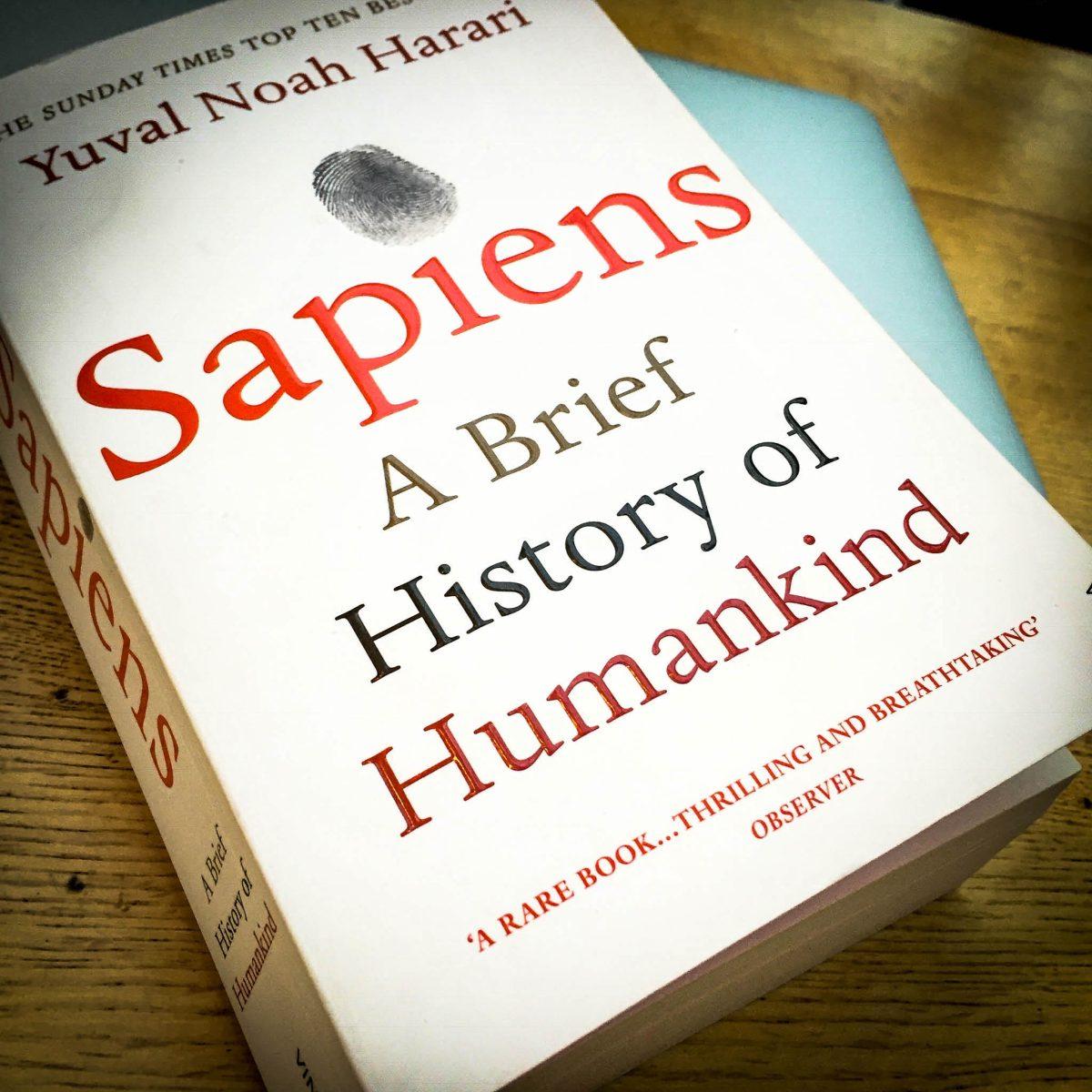At first thought, Sapiens: A Brief History of Humankind seems an ill-fitting title. How could anyone successfully condense all of human history into something “brief”? After reading this book, however, Yuval Noah Harari’s purpose is clear: showing the reader how brief the history of Homo sapiens really is, and exploring the monumental advancements we’ve made during our short existence on this earth.
Harari divides his book into four parts of history: the Cognitive Revolution, the Agricultural Revolution, the Unification of Humankind and the Scientific Revolution. He takes a much different historical perspective on these periods than the one you probably were exposed to in history class and challenges the reader to think differently about significant periods in human history. This is most clear in Harari’s insistence on providing a constant reminder that the four periods are specks of dust compared to the 13.5 billion years our universe has been in existence. This emphasis was something I loved about the book. In our history classes, we can only cover recorded history, which only started about 5,000 years ago. Harari ensures that he discusses the human brain, human social structures and the physical human body with a retrospective focus, not limiting his book to purely written history.
Sapiens makes several bold, reasoned claims that force the reader to reconsider what we think about society and the way we teach history. The least of these is that the Agricultural Revolution was the worst decision Sapiens ever made. While I won’t flesh out Harari’s reasoning here, he does an excellent job of defending his uncommon claim thoroughly, even if the reader decides not to agree. Even more unsettling is his measured assertion that all of human unity is based on agreed-upon myths; first, the common belief in religion, then the rule of law, then the value of money. It’s disconcerting to consider that our society is founded on created ‘truths’ (think of what would happen in the United States if we all simultaneously refused to belief in the ideals of the Constitution). More fascinating than unsettling is Harari’s view of the Scientific Revolution: the admission of ignorance was the trigger of the revolution. Overall, Harari does a good job defending his claims, even if the reader finds them odd or even uncomfortable.
Sapiens is an informative, scientifically-backed analysis of our history and progression that will interest anyone who wants a big-picture perspective on the human race. The unique, retrospective view that Harari presents, coupled with intriguing considerations what built our societies and what makes them tick, makes Sapiens a thought-provoking read. If you’re looking for a comprehensive history, or just a book to make you think, I highly recommend Sapiens.





















